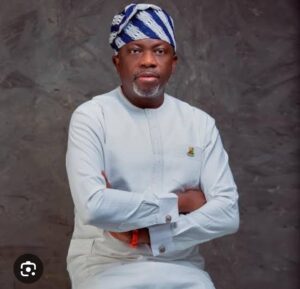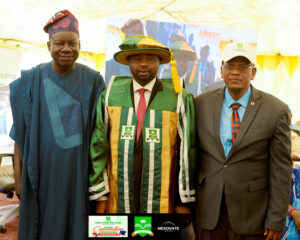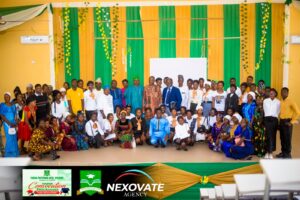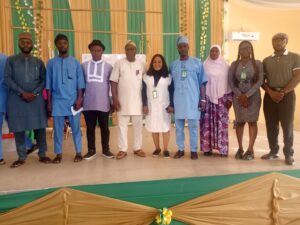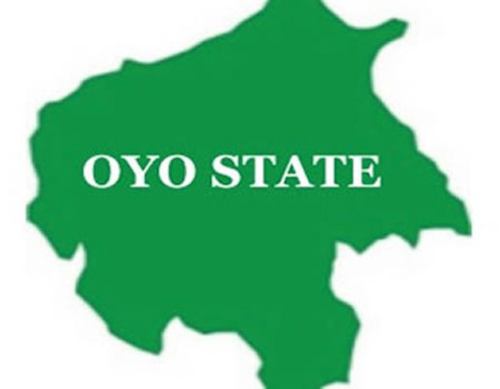
By Mutiu Lasisi
As the race for Oyo State’s 2027 governorship election gradually unfolds, a closer look at the early positions of potential candidates and their supporters reveals much about how the contest is taking shape. While formal campaigns are still some distance away, the current landscape already shows important clues about the themes and messages shaping the political conversation.
A recent analysis of political actors and their associations with key issues by our analyst highlights the early narratives guiding each player. These themes include competence, declaration of interest, generational change, and concerns over imposed candidates. The ways in which candidates and their support groups connect with these issues provide insight into their strategies and the messages they intend to amplify.
The most prominent issue at this stage appears to be declaration of intent to run. This is more than a ceremonial act. It represents a moment for candidates to make their ambitions known, test their public support, and send signals to allies and opponents. Several figures have already attached themselves clearly to this issue. Notable among them are Zacch Adelabu Adedeji, Chief Saheed Oladele, Mr. Olaoluwa Peter Abidemi, Barrister Adebayo Shittu, and Mr. Adewale Kolapo Kareem. Their visible connection to the idea of declaration suggests they are either already in the race or preparing to formally enter with confidence.
Not all candidates are eager to confirm their intentions so early. Chief Jubril Dotun Sanusi and his support group are both closely tied to the theme of denying a declaration. This may be a calculated move. By keeping his plans unclear, Sanusi remains part of the political conversation while preserving flexibility. This strategy helps maintain public interest without locking him into a specific course of action.
The theme of competence is another key pillar of this emerging political narrative. In a country where leadership is often shaped by personal networks or popularity, a focus on capability and experience is a noteworthy development. Saheed Oladele and a former member of the House of Representatives, Babatunde Oduyoye, are both linked to this issue. Their alignment with competence suggests an attempt to appeal to voters who value skill and performance over political loyalty or familiarity.
Meanwhile, Akeem Agbaje is positioning himself around the concern of candidate imposition. His stance suggests a pushback against internal party decisions that bypass grassroots input. This message could resonate with both party members and the wider public who want greater transparency and fairness in how candidates are chosen. It reflects a wider dissatisfaction with political godfatherism and top-down selection.
Governor Seyi Makinde stands out for a different reason. He is clearly associated with opposition to older aspirants. This indicates a desire to support new leadership, possibly encouraging a generational change in Oyo politics. As a sitting governor, Makinde’s stance may shape his party’s direction and influence which kinds of candidates gain traction. His position could also strengthen his image as someone invested in political renewal.
Some figures, however, are notably absent from the main themes. Senator Abdulfatai Buhari and Dr. Gbenga Adegbola are not directly connected to any of the dominant issues identified in the analysis. This may suggest a cautious or reserved approach at this stage, or it may reflect activity that is more behind-the-scenes. These politicians could be waiting for the field to settle before revealing their strategies.
The role of support groups in these early alignments is also significant. For instance, the Jubril Dotun Sanusi Support Group is actively engaged with the theme of denying declaration. Their visibility, even while their preferred candidate remains noncommittal, shows how grassroots supporters can help shape momentum and public perception. It also reflects the growing influence of organized political support outside of formal party structures.
These early alignments are more than just political statements. They are tools for building identity, attracting attention, and preparing the ground for future endorsements or partnerships. They also reflect deeper struggles within the political system—between insiders and outsiders, between youth and experience, and between controlled succession and open competition.
As the 2027 governorship race in Oyo State continues to unfold, the way candidates engage with these core issues will matter just as much as their official campaign announcements. Voters will be watching not only who steps forward, but how they justify their ambitions and which values they choose to stand for.
The months ahead will reveal more about who truly commands support and who is able to convert early narratives into lasting political capital. What is already clear is that the race has begun in earnest, and it is being shaped not only by personalities but also by the issues they choose to embrace or avoid.
Mutiu Iyanda
Mutiu Iyanda is a Research and Communications professional. He currently works with Infoprations Limited, a data-driven management consulting company based in Lagos, Nigeria.



